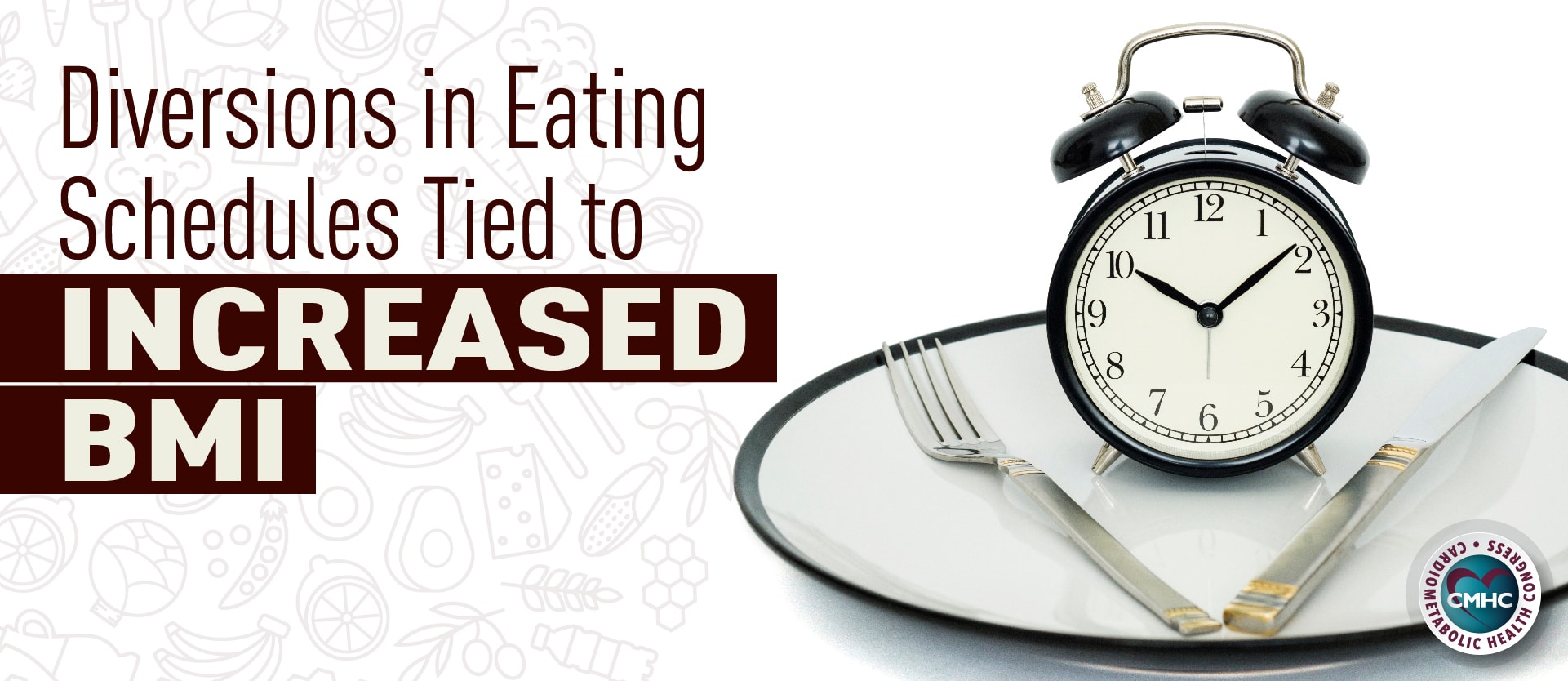Nutritional patterns play a well-established role in cardiometabolic health; dietary choices have implications on a host of diseases, such as diabetes and cardiovascular disease, and can greatly affect patient health outcomes. In recent years, an important aspect of nutrition other than the type and quality of foods being consumed has been highlighted as more evidence reveals the significance of meal timing and its impact on obesity and adverse metabolic outcomes. Prior research has tied delayed food intake with decreased energy expenditure, diet-induced thermogenesis, and dysfunctions in glucose tolerance.
While the impact of mealtime variability is being increasingly investigated, there have been few research efforts to identify the implications of meal timing differences between weekday and weekend eating schedules on body mass index (BMI). A new study published in Nutrients presents evidence of BMI fluctuations caused by diversions from regular eating schedules – referred to as “eating jet lag” – which may be as disruptive to the body as time zone and circadian rhythm variations.
Eating Jet Lag
A team of researchers from the University of Barcelona conducted a cross-sectional study to analyze the effects of meal timing variations on weekends versus weekdays and their subsequent implications on BMI levels. As part of the trial, researchers evaluated 1106 participants between the ages of 18 and 25 from a population of undergraduate and postgraduate students. Participants reported their eating schedules, height, and weight from 2017 to 2019.
The research team then determined the cohort’s average meal duration on both weekdays and weekends along with the “eating midpoint”, or the halfway point between the first and last meal. Using this data, they calculated each subject’s overall eating jet lag value by subtracting the weekend eating midpoint from the weekday eating midpoint. The same formula was used to determine eating jet lag values for breakfast, lunch, and dinner for each participant, finding that the greatest amount of jet lag was related to breakfast.
Researchers then used linear regression models to account for circadian-related variables, such as chronotype, eating duration, sleep duration, gender, and diet quality.
Effects of Eating Schedule Diversions
A positive association between eating jet lag and BMI was reported, independent of chronotype and social jet lag. The study’s authors found a threshold of eating jet lag of 3.5 hours or more, which was linked to significant increases in BMI value. According to the study, 64% of participants reported over an hour of breakfast-related jet lag each weekend while 22% exceeded 2 hours of jet lag.
No correlation between the jet lag values for any specific meal and higher BMI levels was found, however, the overall association between diversions in eating schedules and BMI was statistically significant.
The latest findings may be related to disruptions in the circadian rhythm as Trinitat Cambras of the University’s Department of Biochemistry and Physiology explains: “Our biological clock is like a machine and is ready to unchain the same physiological and metabolic response at the same time of the day, every day of the week. Fixed eating and sleep schedules help the body to be organized and promote energy homeostasis.”
When food intake takes place irregularly, the body’s metabolic functions are disrupted and thus, can contribute to BMI fluctuations. The influence of meal timing on BMI and obesity requires further investigation, however, the benefits of maintaining a regular eating schedule are well-known. Future nutritional guidance for the prevention of obesity and weight management may additionally focus on meal timing and ensuring regularity in food intake as factors to better metabolic function in the general population.


















